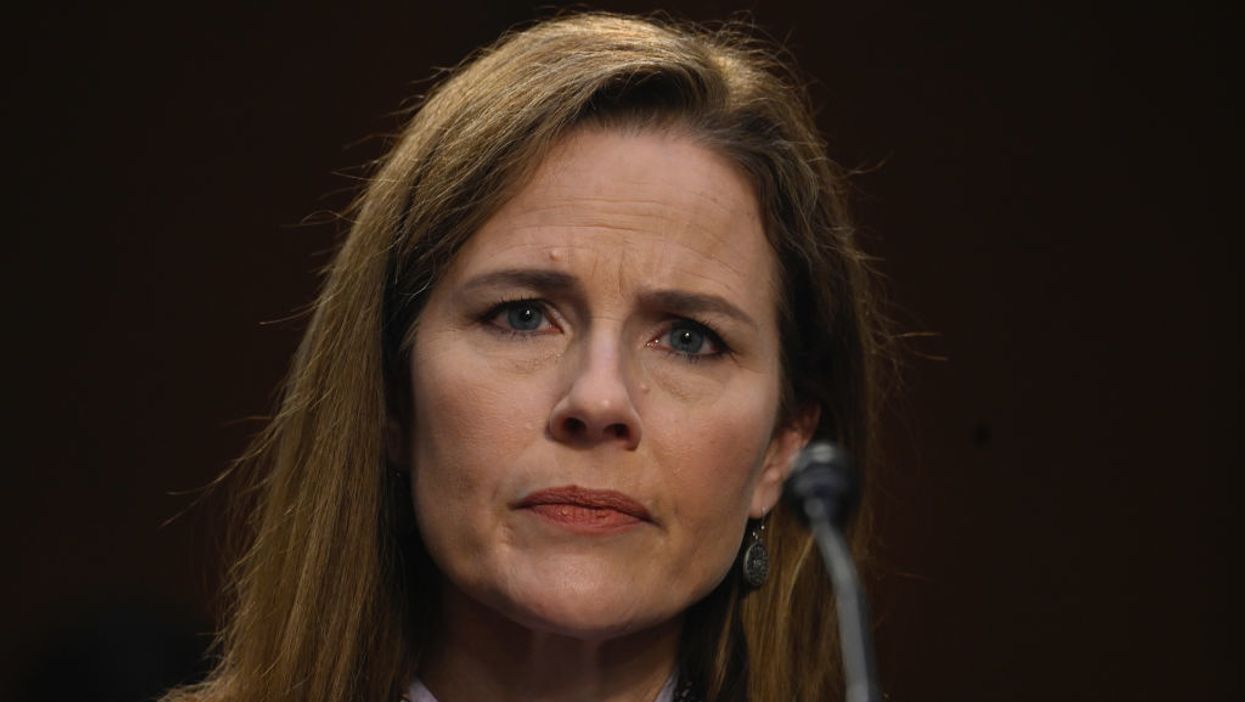
Andrew Caballero-Reynolds-Pool/Getty Images

Fake news
It is by now not a surprise to find the media deliberately mischaracterizing the judicial opinions of conservative nominees to the Supreme Court. One particular claim that has been leveled against current nominee Amy Coney Barrett, however, deserves further examination.
The claim, as advanced by the Associated Press and amplified by liberal legal figures in the media like Jill Filipovic, is that Barrett once ruled that being called the N-word by your supervisor does not constitute a hostile work environment, which is obviously a position that no reasonable American would espouse.
The first clue that Barrett's opinion is being grossly mischaracterized can be found in the fact that none of the other judges who reviewed the case dissented from it in the slightest. Indeed, Barrett's opinion merely affirmed the decision reached by district judge Edmond Chang, who was appointed to the bench by former president Barack Obama. Neither of the other judges on the three-judge appellate panel uttered a peep even in concurrence. The idea that four separate federal judges signed off on an facially racist position without a word of dissent ought to be so obviously laughable that no reasonable person would reprint it.
Yet here we are.
The actual facts of the case indicate that the plaintiff had no real shot of proving his case of racial discrimination. As detailed at length in Judge Barrett's opinion, the plaintiff was deemed to be an unsatisfactory employee virtually from his first day on the job, invoking the ire of almost all his supervisors with unsatisfactory performance — and worse, a number of incidents in which the health and safety of his coworkers were threatened due to his negligence. His performance was so obviously unsatisfactory that he did not make it through his employment's probationary period.
The incident involving the use of the N-word, in fact, occurred after the Illinois Department of Transportation had already decided to fire him. According to the uncontested facts in the opinion, the department began proceedings to terminate the plaintiff's employment on Jan. 4, 2013. Almost two weeks later, when those proceedings were nearly concluded, one of Smith's supervisors (who was also black — a perhaps salient fact that was omitted by the Associated Press) learned for the first time that Smith was contesting his termination by alleging that he was the subject of racial discrimination.
This supervisor, who was understandably irked by this transparent last-ditch diversionary tactic (and was, as a reminder, also black) called the plaintiff a "stupid-ass n*****."
The case did not examine the question of whether this was a good choice of words or even whether it was racial harassment for a black supervisor to use it against one of his black employees. Indeed, Barrett wrote in her opinion that the supervisor's use of the word "plainly constitutes race-based harassment." Rather, the issue in the case centered on whether the use of the epithet "altered the conditions of his employment and created a hostile or abusive working environment."
Under binding Seventh Circuit precedent, in order to satisfy this test, a plaintiff had to show "not only that a reasonable person would find the workplace hostile or abusive as a result of Colbert's slur, but also that he himself perceived it that way." The plaintiff's case was dismissed because he failed to offer any testimony that would have even suggested that he was bothered by his black supervisor's use of the N-word, separate and distinct from the fact that he was generally bothered by the fact that his supervisors always seemed to be yelling at him.
As Barrett noted (again without dissent), "Smith did not even try to make that showing — he points to no evidence that Colbert's slur caused him either additional or different distress. Without evidence that Colbert's outburst changed Smith's subjective experience during his last two weeks at the Department, a reasonable jury could not resolve the hostile work environment claim in Smith's favor."
The case, then, did not turn on whether it was OK or legal for a supervisor to use the N-word against one of his employees, but rather whether the plaintiff had offered sufficient testimony to meet a legal test that was imposed by binding Seventh Circuit precedent. Not only had the plaintiff not submitted sufficient testimony on that score, he had submitted none at all. Therefore, multiple federal judges ruled that his case should be dismissed.
The implication that Barrett, as a judge, condoned or passed over the use of the word in the workplace is simply false.